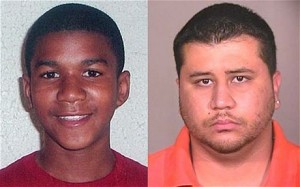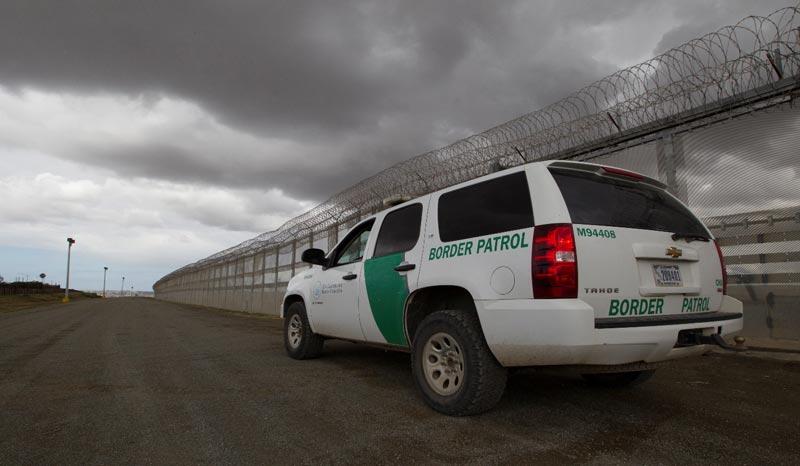(ThyBlackMan.com) To be or not to be: “suspicious” or just suspiciously black? The expression Driving While Black (DWB) was coined to reflect the criminalization of through racial profiling that has led in the last few decades to numerous Department of Justice (DOJ) consent decrees in major cities across the U.S to monitor and stymie such prejudicial and arbitrary police practices.
Perhaps the federal investigation being launched to probe the shooting death of 17-year-old Trayvon Martin in Central Florida allegedly by George Zimmerman, 28, a self-appointed vigilante and neighborhood watchman will lead to much-needed and long overdue DOJ consent decrees prohibiting the law enforcement tactic targeting Walking While Black (WWB)—the criminalization of the too young, too urban, too old, too suspicious, too rowdy, too hood, but most definitely the too brown and too black to be freely walking the streets unmolested by unwarranted law enforcement intrusion.
In the crime-stopping mind of George Zimmerman, nearly a decade older and  100 pounds heavier than the young teen, Trayvon Martin’s act of WWB, conducted so cavalierly and slowly during a jaunt with skittles and iced tea, was criminal because Trayvon Martin was a young black male wearing a hoodie in a Sanford, Florida gated community.
100 pounds heavier than the young teen, Trayvon Martin’s act of WWB, conducted so cavalierly and slowly during a jaunt with skittles and iced tea, was criminal because Trayvon Martin was a young black male wearing a hoodie in a Sanford, Florida gated community.
It appears to this blogger and lawyer that George Zimmerman’s stalking and shooting of Trayvon Martin was fueled by unjust and misguided stereotypes—too often guised as legitimate police practices and crime fighting tools—used in determining who belongs and who doesn’t, who’s a villain and who’s law abiding, and ultimately who deserves due process and the benefit of the doubt versus who warrants swift and immediate justice.
A federal and state prohibition against the controversial “stop and frisk” police practice, also known as “Terry” stops, which disproportionately affect low income minorities would send a strong message against the type of racial profiling that contributed to Trayvon Martins’s death.
In this instance George Zimmerman was a police want-a-be whose obsession with cops and robbers had fatal consequences. However, the type of discriminatory stereotyping that led George Zimmerman, the self-appointed neighborhood watchman, to deem Trayvon Martin as ‘suspicious’ and worthy of a stop, plays out in major cities across the nation in the form of stop-and-frisk police activity.
According to the New York Civil Liberties Union’s (NYCLU) website:
“The NYPD’s stop-and-frisk practices raise serious concerns over racial profiling, illegal stops and privacy rights. The Department’s own reports on its stop-and-frisk activity confirm what many people in communities of color across the city have long known: The police are stopping hundreds of thousands of law abiding New Yorkers every year, and the vast majority are black and Latino.”
NYCLU and the NAACP Legal Defense Fund, along with dozens of other grass roots and advocacy organizations, have protested against the discretionary and often discriminatory practice of police stopping ‘suspicious persons’ and frisking them without necessarily having probably cause. Hip Hop mogul Russell Simmons and former Princeton professor and civil rights activist Cornel West have also opposed the “stop-and-frisk’ police practice. Quantitatively, racialized police practices do not impede crime. NYCLU has found that nine out of 10 New Yorkers stopped and frisked have been innocent.
However, law enforcement officers, whether policemen or neighborhood watchmen, who conduct detentions and searches in a discriminatory manner have robbed not only the wrongfully stopped, stereotyped “suspects’ of their dignity, but have also undermined our collective sense of humanity and justice. What happened to Trayvon Martin because of prejudicial and unsound community policing tactics, which up until now has gone unprosecuted, indicates that “stops and frisks” and discriminatory law enforcement, puts us all in jeopardy. Who knows when anyone of us could be wrongfully judged, mistaken and fatally stereotyped?
Staff Writer; Joy Freeman-Coulbary
Feel free to connect with this lawyer via Twitter; enjoyJFC.




















Lets stop being in denial.
Both people were at fault but only one had a gun
For more of Joy’s reads, go to The Washington Post, for more scintillating, edgy opinions:
http://www.washingtonpost.com/blogs/therootdc/post/miami-marlins-manager-ozzie-guillen-suspended-for-fidel-castro-comments/2012/04/17/gIQAVjqAOT_blog.html
All very good points. Further, he was the aggressor, so I am not sure how self-defense would make this justifiable homicide. Coverage in the Afro:
http://www.afro.com/sections/opinion/story.htm?storyid=74440
Why aint he in JAIL! if it was a black man shoot a white kid he would be in jail. (This is not right)
George Zimmerman is already convicted in the court of the internet, for a list of murder offenses. However, in the real world it will not be so easy. Case in point, the Casey Anthony case. I hope the prosecution won’t be pushed into over charging, and let George off because he was overcharge without enough evidence to convict, beyond a reasonable doubt. In my opinion, damages should be paid by, The owners of the apartment complex, Neighborhood Watch, Sanford Police Dept, City of Sanford, Seminole County, The State of Florida.
If you’re interested in more of JFC’s coverage of Trayvon Martin, civil liberties and stop-and-frisk, click here:
http://www.washingtonpost.com/blogs/therootdc/post/trayvon-martin-and-stop-and-frisk-laws/2012/03/21/gIQAYZK6RS_blog.html